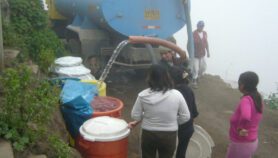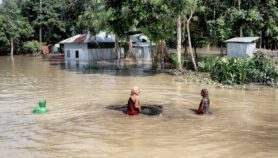Send to a friend
The details you provide on this page will not be used to send unsolicited email, and will not be sold to a 3rd party. See privacy policy.
[SANTIAGO] Two Asian and two Latin American cities are among the 20 best places in the world to set up technologically innovative companies, according to a report on start-ups.
'Startup Ecosystem Report 2012: Part One', published last month (20 November), analyses data on indicators such as start-up numbers; funding; company performance; talent and support infrastructure from more than 50,000 start-ups around the world.
Sao Paulo in Brazil is 13th in the ranking, Singapore comes 17th, Bangalore in India is 19th and Santiago in Chile sits in 20th place in the report published by Startup Genome, a network of local start-up communities, and Telefónica Digital, a branch of the Spanish telecommunications operator Telefónica.
"Simultaneous with a global explosion of entrepreneurship has been an explosion in the rise of new startup ecosystems around the world," the report says. "While Silicon Valley is far and away the strongest ecosystem, just five or ten years ago most of the other ecosystems on this list either barely existed or didn't exist at all."
"These [start-up] ecosystems offer a suitable environment to nurture ideas and innovation, and for start-ups to grow into fully fledged businesses," Gonzalo Martín-Villa, chief executive of Wayra, a start-up support business from Telefónica, tells SciDev.Net.
Cities or other areas may become Silicon Valley equivalents if they have political stability, a talent pool, access to capital and can draw on knowledgeable mentors, he adds.
The report points out that those places that differentiate themselves from Silicon Valley and develop their own strengths will perform better at supporting new technology firms.
In the developing world, Santiago and Sao Paulo come closest to Silicon Valley in the report's 'mindset index', which measures company founders' entrepreneurial qualities such as vision, resilience, appetite for risk, work ethic and ability to overcome challenges.
Bangalore's strength comes from its ability to tap into India's huge domestic market and the country's broad talent base of well-educated and highly skilled entrepreneurs, according to the report.
But the city lacks capital, which "will be key in determining how these hubs of excellence will offer competition to established hotspots", according to Padmashree Gehl Sampath, head of the technology and innovation reports of the UN Conference on Trade and Development,
The report credits Santiago's high position in the ranking to various government support initiatives. "It demonstrates to other hubs and their political decision-makers that it is possible to nurture, sustain and foster an entrepreneurial mind-set," it says.
One of these initiatives is the Start-Up Chile programme run by the nation's government. This aims to attract early-stage, high-potential foreign entrepreneurs to start businesses in Chile.
Early next year, 105 start-ups from more than 30 countries — 44 per cent of them information-technology ventures — are due to arrive in Santiago. Twenty-four per cent are set to come from the United States, followed by 19 per cent from other parts of Chile, nine per cent from Argentina and seven per cent from India, according to Oliver Flögel, executive secretary for digital development for the Chilean government.
"Chile's bid is to become the lead innovation hub in Latin America, but there is plenty still to be done," says Horacio Melo, executive director of Start-Up Chile.
"For example, we are working hard on the cultural shifts needed for Chile to embrace failure and risk as a learning process," he adds.
According to Flögel, Internet giant Google's September decision that Chile will host its first data centre in Latin America is a clear sign of the country's technology leadership in the region.













